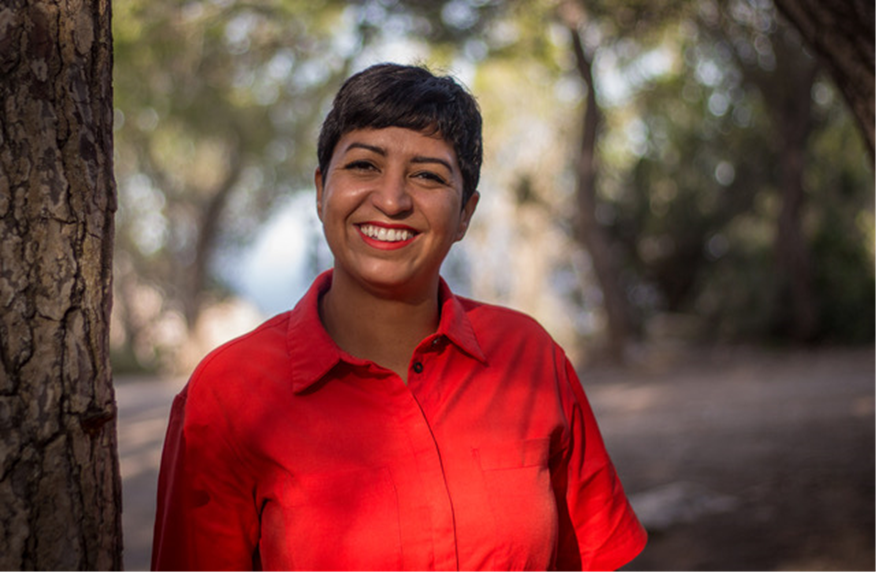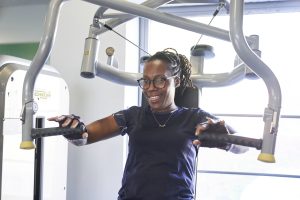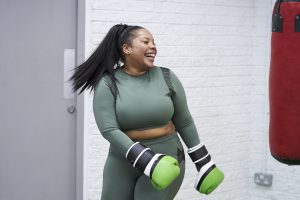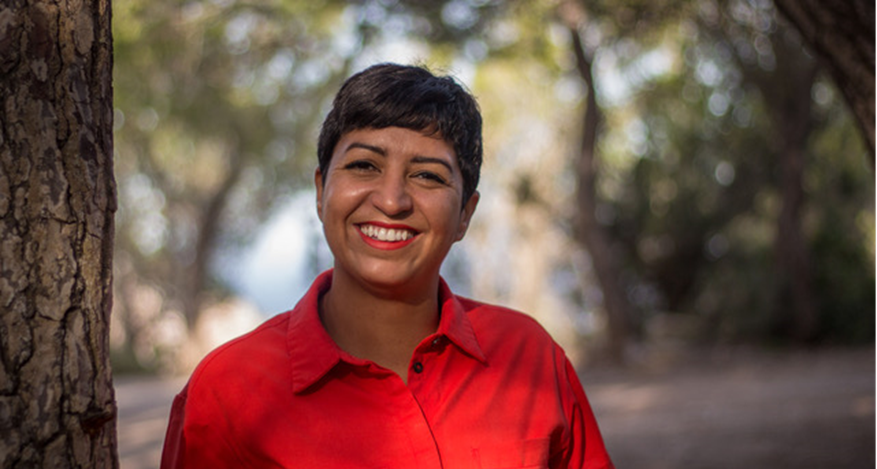Women in Sport’s vision is that no-one is excluded from the joy, fulfilment and life-long benefits of sport. We have campaigned for decades to foster gender equality across all areas of sport, including securing a Sports Governance code that ensures a minimum of 30% of women on sports boards.
We know, however, that numbers alone are not enough – we must create an inclusive culture where everyone feels like they truly belong. Our Beyond 30 project funded by Comic Relief aims to challenge the gender imbalance in sports culture. But women are not one homogeneous group, and do not experience identical challenges in the workplace.
To explore this, we asked Letesia Gibson, founder of New Ways, to lead some deep dive insight with seven Black and Asian women working in sport. Given Letesia’s own background as a mixed race woman living in the UK, and her unique understanding of organisational culture, leadership and diversity issues, we wanted you to hear her reflections directly through a series of four blogs. We hope you find these as powerful as we do and that they encourage you to reflect on yourself, on your organisation and how to be part of the change that the sports sector needs.– Kate Nicholson, Head of Insight and Innovation

Letesia Gibson
Over the last few months, I’ve been interviewing various women at different levels of seniority in sports organisations across the UK on behalf of Women in Sport as part of their project exploring workplace culture. This was an investigation designed to deeply understand the specific experiences of women of colour and help shape a more inclusive future for the sector.
Informed by the voices of the amazing women I spoke to, I’ll be sharing some of the key themes that feel important to elevate, so that more people can hear their insights and reflect on how they can respond to the challenges they raise. In truth, anyone who seeks to develop a truly inclusive workplace culture that nurtures all people should listen and learn to the experiences of women of colour.
The following blog is the first in this series, and explores the importance of ‘belonging’ at work.
I’m invited to the party, but no-one has asked me to dance.
Why belonging, not just representation, is the key to diverse leadership.
The journey towards women’s equality in sport has had many wins, but there is still more to do, especially at senior levels. And when we look at our leadership progress through the lens of ethnicity, we’re barely off the starting block. There’s plenty of talk, especially now, about representation as a solution, but change won’t come by inviting women of colour to join someone else’s club. The real shift will be seen when leadership is not seen as only a place for those with a white, male world view. Instead it will come to organisations that create cultures of true belonging, where there is not only space for difference at decision-making tables, but diversity is valued for the rich benefits it brings to our community, our sports, and quality of leadership overall. Achieving this will be a win for all women, but especially women of colour and the fight against structural racism.

It was the children’s rights activist Marian Wright Edelman who famously claimed, “You can’t be what you can’t see.” So, for those of us working in sport, when we see any woman making their way into leadership, it is totally inspiring. The women that have it in them to be their own role models, pioneering the way for others, have already done so much to remove the barriers keeping gender inequality alive. Women working in the sports sector know that for all its huge rewards, you have to earn your place and win respect, with hard work and demonstrating commitment as a given. Doing so as a woman comes with additional challenges, whether it’s fighting for credibility, managing family life alongside work or continuously having to ensure fair attention is given to women in their sport.
It has been humbling and genuinely inspiring to hear how British women of various ethnicities are navigating their way in a world of work that is set up to guide white men, not women of colour, into leadership roles. As well as the challenges of gender inequality, they also have to deal with the impacts of structural racism that run deep in many aspects of working life.
These days we talk a lot about being able to bring your whole self to work, but what does that mean when you are made to feel that the version of you that will get you ahead needs to be edited, fine-tuned and finessed to fit into a white world?
“There’s an aspect of who we are that doesn’t have a place in the workplace. So, you minimise it, you suppress your race.”
“I don’t talk about race at work. I worry it might be seen as a weakness or affect my progress in some way.”
Dealing with being an outsider starts young. I’m sure other women in sport can identify with having been the only one who was sporty in their group of friends, but when being an outsider crosses into many aspects of your life, and is a constant in everyday situations, this creates a much bigger sense of not fitting in. For women of colour there’s a special kind of resilience that develops to deal with the ongoing need to prove your worth and to try to fit in. This is done with such grace, but the emotional weight of carrying this invisible pain is rarely appreciated by white peers in the workplace.
“Black people feel they need to talk a certain way, to change their hairstyle or their dress code to fit in.”
“You do hear the subtle undercurrent of discrimination. “You’re here to make up the quota” – the jokes that aren’t really jokes.”
Most Black, working class women will have had ‘the chat’ at some stage in their youth, where their parents prepared them for the road ahead by letting them know that things would be tougher because of the combination of their skin colour and gender, sharing advice on how to stay strong in a world not made for them. South Asian women will often have relied on the support of immediate family or friends to give them the confidence to take a risk by stepping outside of the expectations of their wider community and culture and follow their passion into a sports career.
It was women in my own community that helped me be brave and follow my path with sports
“It was women in my own community that helped me be brave and follow my path with sports, because culturally, the ideal path is to get married, have kids, and participate in the circle of life. My parents had to be educated to come on the journey with me.”
“Of the 400 people starting my sports management degree, I was one of 2 brown faces. I felt really out of place. But I had the support of my family, even if the wider community were not aware of sports part of the degree.”
We talk about the importance of role models, and here we see a group of women who have had to become their own from an early stage because pathways didn’t exist or were not obvious, and guidance and mentorship to enable progress were not always forthcoming. It’s a master class in what passion, determination and a strong sense of purpose can help you achieve in spite of this. Although it has often meant having to take the winding, slower road because they didn’t feel ready, confident or qualified enough. These very talented women could have been stronger leaders earlier had they felt like they belonged.
“I never thought I had anything to offer to management because I was surrounded by white males in the coaching world.”
“I got my first leadership role at 35. Many of my white peers were there 5 years before me.”
We say that leadership is accessible to all, but in reality, it’s defined by a white, male, middle class view, which is neither helpful nor reflective of the qualities of leadership and sportsmanship. This makes certain groups feel completely excluded from it, and this is especially true for women of colour. Those who get there question their validity and even when their confidence grows, they continue to be questioned by others about their fit.

“Leadership is a new language, new terminology, new ways. It felt like a world I didn’t belong to. I did question if I really did belong there, or if I was just there because of my skin colour.”
“I believe we can achieve to a certain level, but not to leadership. To sit a table with white men, I can’t see that happening. How could I see myself in that board room with those older, white men?”
“I question those organisations that claim they have gotten % of “BAME” to be “board-ready”. How many actually got board level roles and then felt equipped to be at that table?”
And, when we have female leaders of colour that persist, and against the odds find their seat at this senior table, they realise they still have two jobs to do. One which they are paid to do. The second is in breaking down the stereotypes and everyday racism that continue to remind them, and everyone else in the organisation, that this is not a role where people like them usually belong.
“When I walk into a room of white people you can visibly see they were not expecting to see a black woman. I can see it in their body language, stumbling with their words, sideward glances. It’s subtle, but it’s there. And I think, ‘here we go again’.”
We are not short of talented women. We may be losing women of colour at key stages of their career because they do not see a place for them to grow in their organisations or are not encouraged to realise their full potential.
What we are short of are leadership cultures that prioritise this vital ingredient of belonging. Should these cultures exist we would see a wider group of women empowered to step forward, knowing they will be welcomed and supported, believing they will have a mandate to create change in the system that overtly or inadvertently held them back.
Practically, this looks like more men role modelling equality, more conversation and then action to address structural racism that holds talent back, more effort to build relationships across cultures in our organisations, more learning about different leadership approaches and ideas, more value attached to the contribution of women of colour in leadership today.
We need to stop our culture of ‘othering’ and start seeing talent for what it is. Welcome it with open arms, as the sports leaders of the future need to be equipped to navigate change and complexity in a diverse world – and when we see talent capable of this, we should be grabbing it with both hands and doing our best to nurture it.
This needs to be something we create together. And that starts with every leadership team today getting ready to raise their game.
Women in Sport is committed to a working culture where everyone can be authentic and true to themselves. We strive to represent the full diversity of the communities we serve.
That’s why Women in Sport aspires to a culture of belonging for everyone, where diversity is valued for the richness it brings to all aspects of our work, to our quality of thought leadership and to our interactions with all people.




